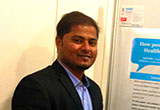 AYUSH—an acronym for Ayurveda, Yoga, Unani, Siddha, and Homeopathy—is a system of medicine that has been integrated into the Indian national healthcare delivery system to strengthen public health in rural India. In 2005, when the Indian government launched the national rural health mission (NRHM) to improve healthcare delivery especially for the rural population, integration of AYUSH was an important strategy that was adopted. This was done with the objective of offering treatment choice to people as well as a strategy to overcome the human resource shortage in the government health facilities. The planning and implementation of AYUSH differs across various states, depending upon the existing level of development of AYUSH services in the state and the development emphasis of the state.
AYUSH—an acronym for Ayurveda, Yoga, Unani, Siddha, and Homeopathy—is a system of medicine that has been integrated into the Indian national healthcare delivery system to strengthen public health in rural India. In 2005, when the Indian government launched the national rural health mission (NRHM) to improve healthcare delivery especially for the rural population, integration of AYUSH was an important strategy that was adopted. This was done with the objective of offering treatment choice to people as well as a strategy to overcome the human resource shortage in the government health facilities. The planning and implementation of AYUSH differs across various states, depending upon the existing level of development of AYUSH services in the state and the development emphasis of the state.
Here I am sharing some of my reflections on the status of AYUSH medical officers who are posted in the government primary health centres. I have had opportunities to meet many AYUSH practitioners who are posted in government run primary healthcare centres during field visits for my research into access to medicines for the rural poor in Karnataka. As per the official mandates and guidelines, these practitioners are supposed to practice Indian systems of medicines at the primary healthcare centres and they are also supposed to manage different national programmes. But often what happens in practice is different. Due to the shortage of trained MBBS doctors, they are posted to primary health centres and are expected to manage outpatient and administrative responsibilities. The AYUSH medicines supplied to the primary healthcare centres are very minimal, most of the time there is no stock of any AYUSH medicines and they are forced to prescribe allopathic medicines due to the patients’s demands as well as the pressure from the district and sub district health authorities which is often “off the record.” Several times these AYUSH doctors have asked the health authorities to allow them to prescribe basic allopathic medicines in more legitimate manner, but the authorities keep rejecting their plea. While narrating his plight, one of the doctors sighed and said “we are forced to do quackery in our health system,” referring to the fact that he is being forced to prescribe and practice the allopathic system of medicine (which is not his area of expertise).
It is an irony when the official mandate expects these doctors to manage the patient load and implement national health programmes, but they do not have the legitimacy to prescribe the allopathic system of medicines which are often very basic and used to manage minor elements. The NRHM is almost a decade old and the problem still has not been addressed.
Allowing the AYUSH practitioners to undergo a bridge course to better orient them to allopathic system of medicine and then legitimize them to use at least some basic allopathic drugs would legitimize their position in PHCs. It is pity that in a country where a chemist can sell allopathic drugs over the counter boldly without any prescriptions, AYUSH doctors are finding themselves unsafe to prescribe allopathic medicines in existing health system.
Praveenkumar Aivalli is a public health researcher at Institute of Public Health Bangalore.
Competing interests: None declared.